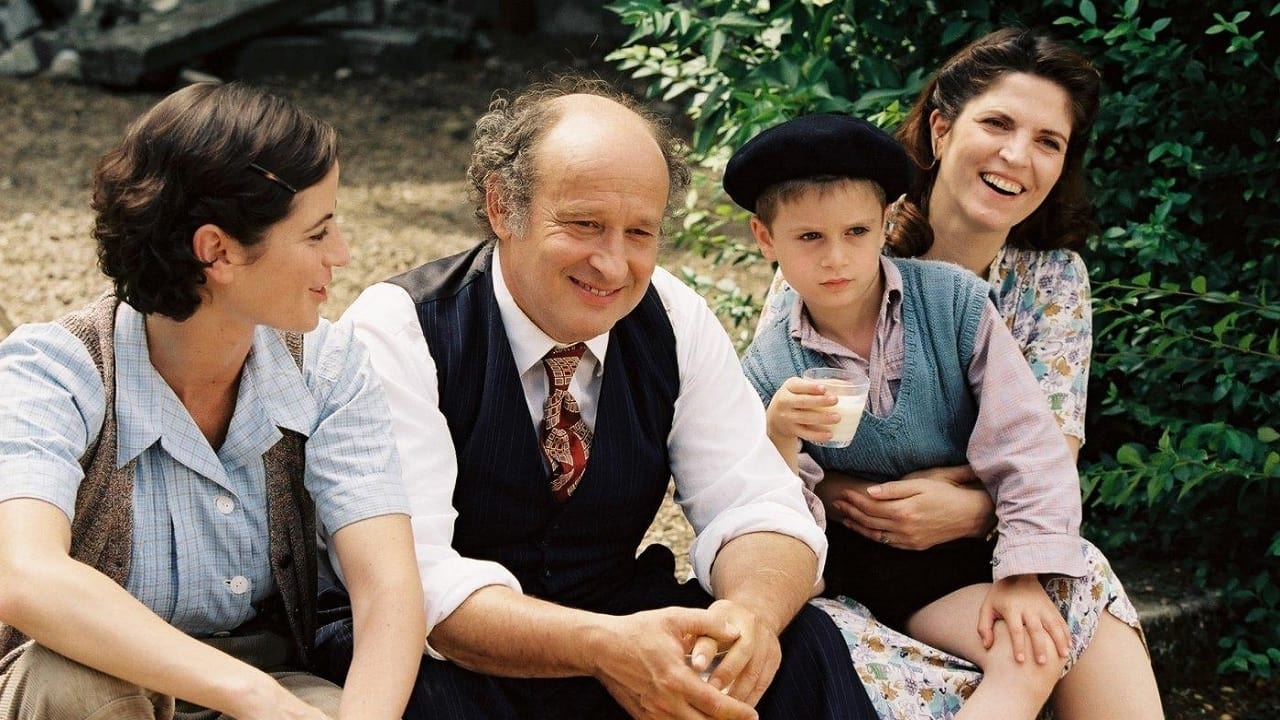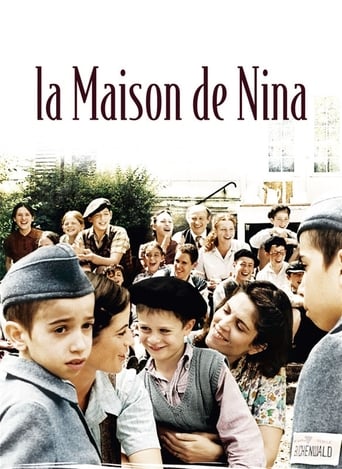

Surprisingly incoherent and boring
... View MoreAn absolute waste of money
... View MoreAbsolutely Fantastic
... View MoreAbsolutely brilliant
... View Morei really enjoyed this movie. it is a great story of survival after and it is very well produced. i personally liked the scenes without moving images as those documentary like scenes have added to the realistic deception of the story. acting was superb all throughout. it is the kind of movie that may bring few tears and would leave you warm heart-ed. it is non-pretentious in its portrayal of the victims of holocaust over the french orphans. i give it 8.5 out of 10
... View MoreI have just seen this as part of the Boston Jewish Film Festival.A very moving piece of work. It immerses the viewer in a very realistic depiction of the experiences of being a previously sheltered/hidden Jewish kid in France or a Jewish kid/concentration camp survivor. The kids in the former group are seen, as would be predictable, as a sunnier, hopeful, bonded group.In their 'safe house' château outside Paris, they have the life of a big extended family, with belief that their parents will return. But eventually, the liberation of Buchenwald and Auschwitz becomes front page news and the film sequence of the kids as they read the newspaper coverage- is very very moving. Soon after, a large group of kids- young to teens- from those same camps, arrives at the château, and the somber and savage ways of this group- greatly affects the dynamics of the previously peaceful life there. All of the acting is pitch perfect and I found the screenplay and editing to be very well done. This experience has greatly added to my understanding of yet another aspect of this world changing horror that was WWII.
... View MoreThere's a certain documentary feel about this film which given the subject matter is not necessarily a bad thing. One would have thought that by now there was little new to add to the thousands of miles of footage devoted to the second World War but this take is new to me at least. Apparently - though I have, of course, no reason to doubt it - towards the end of the war the French government established several large houses to house initially those Jewish children who had hidden and/or had been hidden successfully during the Occupation who were later supplemented by those who survived the camps once the camps began to be liberated: They were in effect Halfway Houses because the ultimate aim was to secure adoption for what were in effect orphans. Agnes Jaoui has never, to my knowledge, played period until now and she is more than adequate which is to be expected from an actress of her calibre. One of the most interesting aspects is the fact that there isn't what we might call a meaty supporting role; Lola Naymark, who co-starred wonderfully with Ariane Ascaride in Brodeuses has to make do with about half a dozen lines and hands up all those who caught a glimpse of Claire Bouanich, Michel Serrault's co-star in Le Papillon. Gaspar Ulliel has been here before, notably in Les Egares but mercifully he too is confined to minimum screen time. It's had a mixed press in France but I hope it finds an audience given the fact that those who would get most out of it are least likely to see it. Those who came through Math:101 without flunking will be able to figure out that anyone who was say, ten in 1945 will now be seventy or dead, hardly a target audience but as I said there are plenty of younger viewers out there who should enjoy a film like this. Let's hope they give it a chance.
... View MoreWell, may bay it's because i wasn't expecting it, but this movie blown me away.this movie shows Jews children and teens in the early 1944, while France is still partially invaded by Nazi, hidden from gestapo - waiting for their parents - in houses called hope houses. Well you, guess it, tears orphanage houses would have been a more realistic name.While the whole world (including themselves) discovers what "final solution" was, surviving children and teens freed from Buchenwald will soon arrive. They'll have to live together, with the scared and traumatized newcomers. Most of them don't speak french, and through the education, they'll be given, we can see how they discover again what means freedom and life.I really enjoy the sobriety of this movie, sometimes very sad, sometimes wonderful, Richard Dembo, try to keep a fair point of view, and avoid a unappropriated miserabilism. This is also his last movie since he died during the post production.inspired from a true story, realized under real Nina surveillance, i really enjoyed it, and this show more on a dark period of french history.
... View More